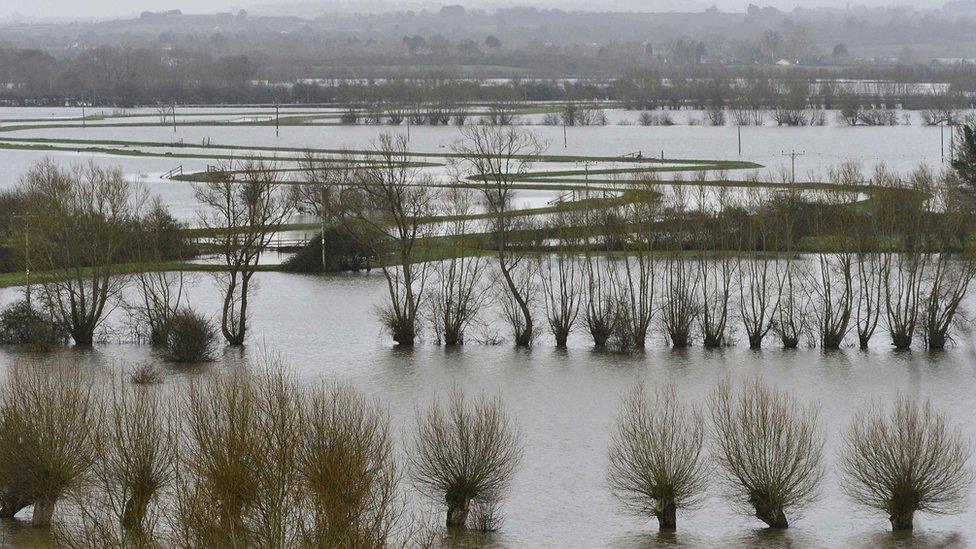Climate change: River flows affected around the world
- Published
- comments

Increased river flow can cause flooding
Climate change can affect the Earth in many ways from average temperature increases to rising sea levels.
Now, new research has suggested that climate change is affecting the flow of rivers around the world.
Scientists have looked at data showing increasing river flows in parts of northern Europe, and decreasing river flows in southern Europe, southern Australia and parts of southern Asia.
They have found evidence that the climate crisis has caused these changes.
Roads in Sheffield flooded when the River Don burst it's banks in 2019
Speaking to The Independent newspaper, climate scientist Dr Lukas Gudmundsson, said: "Our analysis shows for the first time using direct observations that climate change is detectable in river flows at the global scale."
High river flows can cause flooding, whilst low river flows can lead to drought.
In recent years the UK has experienced more floods. In 2019, the River Don in Yorkshire reached it's highest recorded level and caused damage to properties in the surrounding area.
"In northern Europe - the region containing the UK - we find a tendency for increasing trends in river flow, both in the observations and in the simulations accounting for climate change," said Dr Gudmundsson.
Scientists looked at river flow data from more than 7,250 gauging stations across the world from the period 1971 to 2010. A gauging station is where water levels can be measured.
The researchers analysed this data to work out how the flow of rivers had changed in different parts of the world over this time.
Sometimes people have to leave their homes when there's too much flood water
Researchers linked the changes in river flows to climate change by using climate models. These are mathematical tools that helps scientists simulate possible changes to the Earth.
They used two models, one matching the climate today with factors such as greenhouse gases and emissions, then the second model used the climate from before humans started burning fossil fuels on a large scale - the pre-industrial age.
The scientists found that only today's climate model could have created the changes seen in river flows from 1971 to 2010.
Dr Lukas Gudmundsson said that these findings suggest climate change, caused by humans, has played a role in making the changes to river flows.
Climate change can make these changes in river flows because of varying global rainfall patterns which sometimes can cause soils to dry out which can then affect the moisture entering river systems.
However, one scientist who added to the research, Dr Julia Hall, noted that although the findings were "logical and likely", they should still be treated with caution: "Such [statements] will always have some degree of uncertainty."
- Published2 October 2019
- Published20 January 2020
- Published9 September 2020
